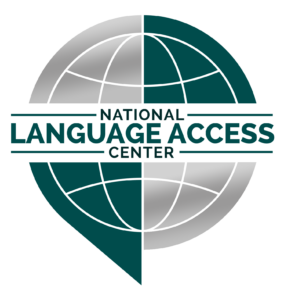The Legal Side of Language Access: Understanding Title VI and ADA Compliance
In today’s diverse society, ensuring language access is not just a matter of good customer service or ethical practice; it’s a legal obligation for many organizations. Federal laws like Title VI of the Civil Rights Act and the Americans with Disabilities Act (ADA) mandate that federally funded organizations provide meaningful access to their services for individuals with limited English proficiency (LEP) and those with communication disabilities. Understanding these legal requirements is crucial for avoiding non-compliance, potential lawsuits, and damage to your organization’s reputation.
Title VI of the Civil Rights Act: Protecting Against National Origin Discrimination
Title VI of the Civil Rights Act of 1964 prohibits discrimination on the basis of national origin, which includes discrimination based on language proficiency. This means that any program or activity receiving federal financial assistance must take steps to ensure that LEP individuals have meaningful access to their services.
Key Provisions of Title VI:
Meaningful Access: Organizations must provide language assistance services, such as interpretation and translation, to ensure effective communication with LEP individuals.
No Cost to the Individual: Language services must be provided at no cost to the LEP individual.
Qualified Interpreters and Translators: Organizations must utilize qualified interpreters and translators to ensure accurate and culturally appropriate communication.
Notice of Rights: LEP individuals must be informed of their right to language assistance services in a language they understand.
ADA Compliance: Ensuring Communication Access for People with Disabilities
The Americans with Disabilities Act (ADA) prohibits discrimination against individuals with disabilities, including those with communication disabilities such as deafness or hearing loss. This means that organizations must provide effective communication and auxiliary aids and services to ensure equal access for these individuals.
Key Provisions of the ADA:
Effective Communication: Communication with individuals with disabilities must be as effective as communication with others.
Auxiliary Aids and Services: Organizations must provide appropriate auxiliary aids and services, such as sign language interpreters, assistive listening devices, and real-time captioning, to ensure effective communication.
Individualized Assessment: The type of auxiliary aid or service provided must be based on an individualized assessment of the person’s needs.
The Intersection of Title VI and the ADA
While Title VI focuses on national origin discrimination and the ADA addresses disability discrimination, there is significant overlap when it comes to language access. Both laws aim to ensure that individuals can effectively communicate with and access services from federally funded organizations.
Practical Steps for Compliance
Conduct a Language Access Assessment: Identify the language needs of your service population and assess current language access provisions.
Develop a Language Access Plan: Create a comprehensive plan that outlines strategies for providing language assistance services, training staff, and monitoring compliance.
Utilize Qualified Interpreters and Translators: Engage trained and certified professionals to ensure accurate and culturally appropriate communication.
Provide Translated Materials: Translate vital documents, forms, and signage into commonly encountered languages.
Train Staff: Educate staff on language access policies, procedures, and best practices for working with interpreters and LEP individuals.
Monitor and Evaluate: Regularly assess the effectiveness of your language access program and make necessary adjustments.
Need Help?
Navigating the legal complexities of language access can be challenging. As someone with extensive experience in this field, I’m here to offer my expertise. I served for 22 years as a Spanish Interpreter at the Milwaukee County Courthouse, and I continue to provide professional interpreting services to organizations throughout Wisconsin. I can also guide your organization in developing a comprehensive language access plan that ensures compliance with Title VI, the ADA, and other relevant laws. Don’t let language barriers become legal hurdles—contact me today to ensure your organization is inclusive, accessible, and compliant.






